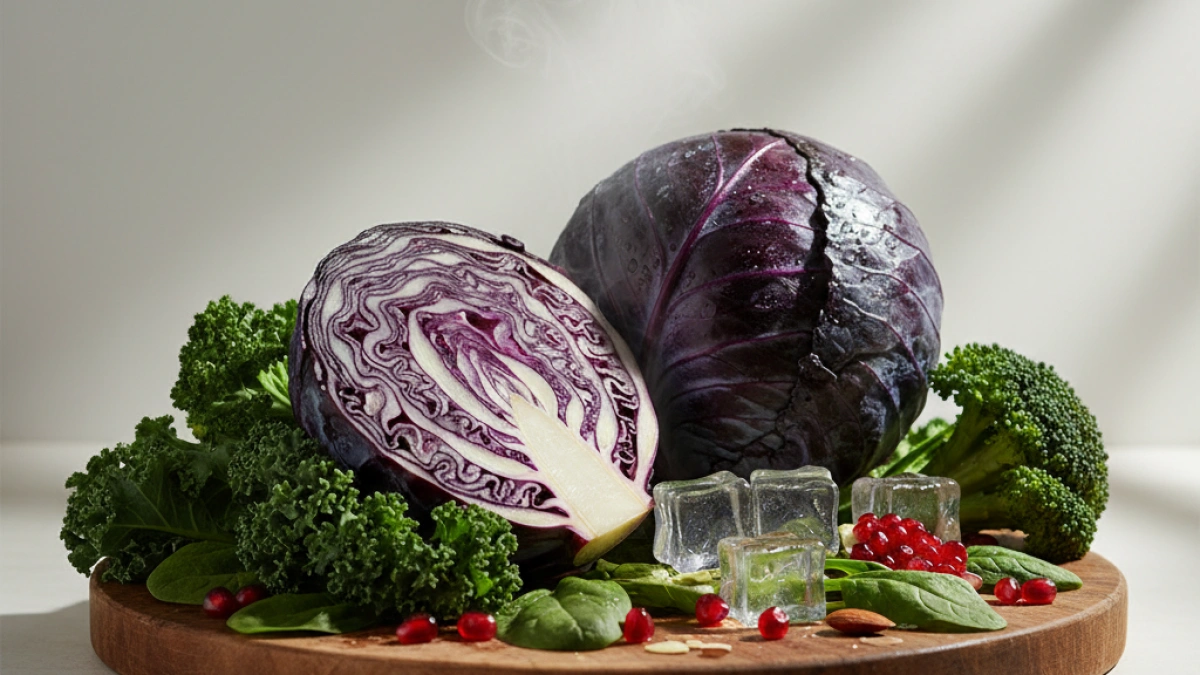Cabbage: The superfood to strengthen your health during climate changes

Cabbage, a green leafy vegetable that often goes unnoticed, has proven to be an essential ally for health, especially during times of climate change. Its richness in nutrients and beneficial properties makes it a superfood that can help strengthen the immune system and promote better overall health. Below, I share relevant information about the benefits of cabbage and how it can be a healthy option during climate transitions.
Nutritional Benefits of Cabbage
Cabbage is a rich source of vitamins and nutrients. It contains high amounts of vitamin C, a potent antioxidant that enhances the immune response of the body. This vitamin is crucial for protecting the body against potential infections, something especially important during periods of temperature changes when it's easier to catch colds or illnesses.
Additionally, cabbage is an excellent source of vitamin K, which is vital for bone health and blood coagulation. It also provides significant amounts of B vitamins, which play an essential role in cellular metabolism and energy production.
Antioxidants and Fiber
Cabbage not only stands out for its vitamin content but also for its richness in antioxidants, such as flavonoids and polyphenols, which help combat oxidative stress in the body. These compounds can contribute to the prevention of various chronic diseases, including cardiovascular diseases and certain types of cancer.
Read also
On the other hand, its high fiber content promotes good digestion and helps maintain a healthy gut. Adequate fiber intake is important for regulating bowel movements and can be beneficial for maintaining a healthy weight.
Effects on the Immune System
During climate changes, the human body tends to be more exposed to pathogens. Including cabbage in the diet can be an effective way to strengthen defenses. The vitamin C and other nutrients present in this vegetable stimulate the production of white blood cells, which are essential for combating infections.
Moreover, regular consumption of cabbage helps balance intestinal flora, resulting in better digestive health and a more effective immune response. Its antioxidant content also helps minimize inflammation, which can be beneficial for those suffering from autoimmune or inflammatory diseases.
Read also
How to Incorporate Cabbage into Your Diet
Cabbage is a versatile ingredient that can be easily incorporated into different preparations. It can be eaten raw in salads, steamed, sautéed, or as part of stews. It is also popular in traditional dishes like sauerkraut or soups. Its mild flavor pairs well with a variety of foods, allowing for the creation of nutritious and tasty dishes.
An Ally in the Kitchen
Including cabbage in your diet is not only a healthy option but also economical and accessible. It is a vegetable that can be easily found in most markets, and its shelf life is quite long. Cabbage has the ability to adapt to multiple recipes, allowing you to enjoy its benefits without getting bored of the same flavor.
In conclusion, cabbage stands out as an exceptional superfood, ideal for incorporating into daily nutrition, especially during climate transitions that can affect our well-being. I encourage you to include it in your meals and enjoy all its benefits.
If you would like to read more news about health and nutrition, I invite you to visit my blog where you will find more interesting content. Thank you for your visit!











































